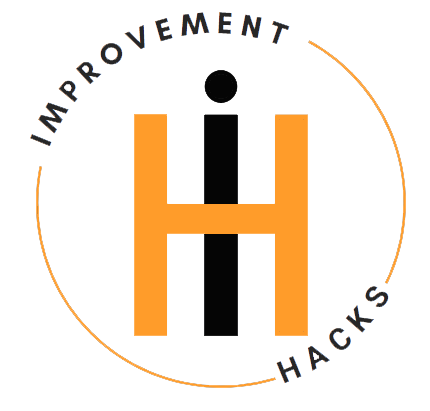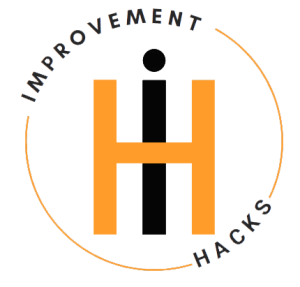Managing your time properly is one of those responsibilities that can quite often get overlooked.
I’m talking about the act of planning out what you need to get done and when you need to do it.
Although it can be really easy to just “go with the flow” and let things happen as they will, you’ll find that putting in a bit of effort to manage your time, can end up making your life much easier overall.
The stress of getting everything done can be greatly reduced by taking the time to use time-saving strategies like weekly planning and time-blocking.
Managing your time more effectively can also free up time for the things that you enjoy, such as hobbies and spending time with your friends or family.
Why Time Management Is Important
It’s becoming more important than ever to plan and be mindful about how you spend your time as the world gets bigger and more complicated.
Some activities that can squander your time away are mindlessly searching through social media or binge-watching TV shows.
And although in moderation neither of these activities is really that bad, the time they can steal from other more important areas of your life can have a detrimental effect.
Better time management has been linked to a number of benefits.
One study gave employees a one and a half day time management training to help with procrastination.
In just after a month, the employees had reported increased time management skills and decreased worry and avoidance behavior compared to employees who did not receive the training (Eerde, 2003).
This demonstrates that by increasing your time management skills it can have a positive effect on your job by encouraging action and decreasing feelings of worry.
Learning how to organise your time can also help you in an academic environment.
Students who feel they have more control over their time benefit from the following:
● Greater work satisfaction
● Greater life satisfaction
● Fewer job stresses
● Less role overload
● Less role ambiguity
● Better self-evaluations of performance (Macan et al., 1990)
Feeling like you have a lot more control over your time is exactly the kind of power that practicing time management can give you.
So instead of beginning to feel a bit overwhelmed, you can feel comfortable and prepared to tackle anything that is thrown at you.
Time Management Skills
There’s certain skills can be useful in developing better time management practices.
Try to focus on building the following skills to gain more control over how you spend your time.
Goal Setting
When you’ve got clear goals, you will understand all the steps that you need to reach them.
This will allow you to take action and get things done.
By having both short-term and long-term goals you’ll be able to prioritize and manage the things you need to focus on.
Organization
Being organized is a must in helping you to manage your time better, because you can easily locate what you are looking for.
This can include keeping your files and paperwork tidy along with taking detailed notes.
Planning
You can maintain your schedule more easily if you plan out your day and week.
This will allow you to complete all of your tasks.
Setting Priorities
There are different ways you can prioritise your tasks.
For instance, you could decide to complete your short, simple tasks first to get them out of the way.
On the other hand, there might be a complicated task that needs your attention right away.
One of the most important aspects of time management is learning how to prioritise.
Controlling Your Stress
It can be quite hard to manage your time when you are feeling a bit stressed.
And not being able to organize your time well, can lead you to becoming even more stressed.
So approaching your tasks from a calm state of mind will help to make you more efficient.
Try a few exercises such as yoga, journaling, or meditation to help manage some of those stressful moments when they occour.
Time Management Tips
Different tools suit different people.
Take a look at the following popular time-management tips and see if they can work for you.
Don’t give up until you find a method and set of tools that you feel comfortable working with.
Pomodoro Method
If you are struggling to get started, this approach can help you in moving forward and complete your tasks.
For 25 minutes, set a timer and work nonstop without interruptions.
Take a five-minute break once the timer is up, then Keep going like this until you’ve finished your task.
Eat the Frog
A time-management strategy known as “eating the frog” suggests starting with the largest or most uncomfortable activity first.
Getting this job completed means it will no longer be hanging over your head.
Also, kicking off with the hardest job first can help you stay motivated for the rest of the day.
Build in Some Proper Breaks
Although it may be tempting to jam-pack your day with activities, it is equally important to schedule yourself a bit of downtime.
Research has shown that building in breaks with regenerative activities, such as going for a walk or relaxing with some meditation, can boost your productivity and overall well-being (Taylor, 2005).
Time management plans that don’t factor in breaks can lead to failure.
So even if you just grab five or ten minutes, you will probably find this really beneficial.
To Sum it All Up
Do you ever feel like you’re always busy but yet never seem to get anything done?
If you are feeling overwhelmed, creating structure around your time can help you regain control.
With a bit of planning and practice, you can learn to manage your time more efficiently.
That means you’ll be able to fit all of your important tasks into your schedule while still making time for the stuff that you enjoy.
Just keep checking out different methods until you find the set of skills, tools, and techniques that works best for you.
Gaining back control of your time can help you gain back more control of your life.
References
● Eerde, W. V. (2003). Procrastination at work and time management training. The Journal of Psychology, 137(5), 421–434.
● Macan, T. H., Shahani, C., Dipboye, R. L., & Phillips, A. P. (1990). College students’ time management: Correlations with academic performance and stress. Journal of Educational Psychology, 82(4), 760–768.
● Taylor, W. (2005). Transforming work breaks to promote health. American Journal of Preventive Medicine, 29(5), 461–465.






